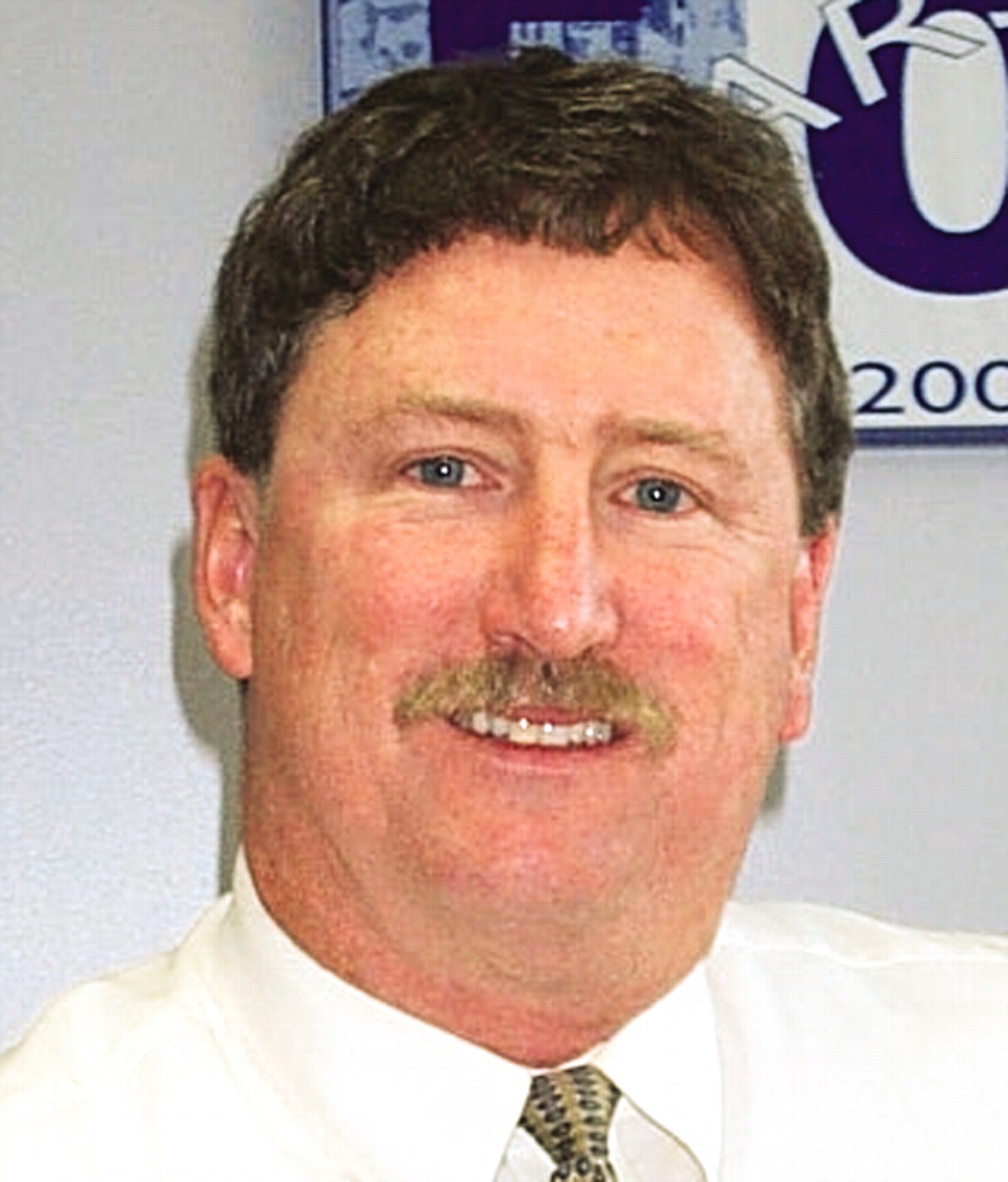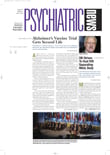A group of Quakers founded Horizon House in 1952 to provide support for people who had been released from psychiatric hospitals in the Philadelphia area.
That small band of volunteers was considerably ahead of its time. More than a decade was to pass before President John F. Kennedy urged the country to share his vision of community-based mental health treatment.
Since 1952, Horizon House has received awards and national acclaim for its psychosocial rehabilitation programs. And it almost went bankrupt during a difficult period in the early 1990s.
Today the agency has a budget of $45 million and a staff of more than 800 full-time-equivalent positions.
The corporate office in downtown Philadelphia houses a partial hospital, day treatment and other psychiatric rehabilitation programs, case-management services, and administrative staff.
Horizon House also operates an extensive network of residential facilities, including transitional and supported housing, throughout the city and in southeastern Pennsylvania. The reach of its services extends into Delaware.
The agency offers cutting-edge programs such as a “housing first” model that recruits among homeless people on the basis of their previous refusal to accept services.
It also provides more conventional programs, including supported employment and a clubhouse, that have long since proved their worth as methods of integrating people with mental illness into the community.
Funding Complex but Used Flexibly
Chief Executive Officer Jeffrey Wilush looks out at the loading dock of a nearby postal facility from his spartan first-floor office. “We keep administrative costs as low as possible,” he explained. “The consumers on the third floor get the view.”
He obviously is a man who thrives on the challenges of his job.
“After all these decades, we know what works,” Wilush said.“ Our task is to find funding sources that enable us to offer those services that have proved effective.”
Wilush, a certified public accountant, came to Horizon House in the early 1990s to help resolve one of the agency's biggest challenges. As a result of a prolonged period of budgetary excesses, Horizon House was about to go into bankruptcy.
Instead, Wilush and Wayne Chiodo, the new executive director, managed to stabilize the situation and rebuild.
The agency has benefited from a period of strong local leadership for mental health services led by Estelle Richmond, who was Philadelphia's managing director under former Mayor Edward Rendell (D) and now serves as secretary of public welfare in his gubernatorial administration.
Philadelphia County administers Medicaid funds and contracts with Community Behavioral Health, which functions as a carveout for mental health services. That arrangement allows agencies flexibility in the provision of services because savings can be used to support activities that might not otherwise be reimbursable.
Those advantages do not, however, result in a problem-free life for Wilush. Like other CEOs, he deals with multiple funding sources, each with its own purpose and administrative requirements, and tries to find ways of matching needs with available funds.
Wilush explained, “I look at the puzzle of finding resources and think, `Who can I talk to about a fix for a problem?'”
Funding agencies will help if they are able when they have confidence their money is being used well, he said.
When asked about his dream for Horizon House, Wilush replied, “I'd like to find out how much more we could do with $50 million in unrestricted funds. [The public] could find out what a motivated and experienced organization could do to provide services if the strings were removed.”
In the meantime, he tries to find ways to strengthen the organization and its staff while maintaining quality services.
The UPenn Collaborative on Community Integration is one such method that makes use of local expertise to strengthen Horizon House's services and document their effects.
The collaborative is based at the University of Pennsylvania and is a partnership among the university, Horizon House, and the Mental Health Association of Southeastern Pennsylvania. The five-year project is funded by the National Institute on Disability and Rehabilitation Research.
Director Mark Salzer, Ph.D., said that the collaborative is the first of its kind to focus on community integration as it applies to people with psychiatric disabilities.
Salzer described his work with a Horizon House program that provides peer and other kinds of support for people with psychiatric disabilities who are enrolled in community colleges. He offered ideas for improvement as a result of his research and also provided staff with outcome measures. The positive outcomes helped Horizon House secure a continuation of funding from a local foundation.
The recent collaboration is part of a long tradition of research at the agency. In fact, Horizon House's first executive director began to develop research capability in the emerging field of community-based mental health services more than 50 years ago.
Staff helped state officials with needs assessments, planning, and training. In 1972 Horizon House created a separate nonprofit research and training center, the Matrix Research Institute (MRI), because of the volume of that kind of work.
For the next 30 years, MRI received federal funds for service-demonstration and field-initiated research projects and continued its training and technical assistance activities. In 2003 MRI was brought back into the Horizon House administration as the Matrix Center.
Wilush and other senior staff regard investment in workforce development as a top priority.
Horizon House was the first human-service agency in the country to adopt WorkKeys, a tool used by for-profit companies to assess the job-related skills of employees and to develop customized training programs.
About two-thirds of the agency's total of 800 full-time-equivalent positions are employed in six direct-care residential positions and two first-level supervisory positions in residential care and treatment.
Director of Workplace Development Larry Kurtz said that he became an authorized WorkKeys job profiler and, with the help of position incumbents, analyzed those positions to determine the necessary skills and begin development of a career ladder.
They found four skills necessary to all positions: teamwork, listening, writing, and reading.
Teamwork is important because staff of residential programs must be able to respond quickly to crises and support each other. Listening, reading, and writing skills are necessary because staff must understand and communicate about such matters as medication dosages and compliance.
Horizon House embarked on an agencywide effort to foster teamwork. Ultimately, more than 800 staff members received training that involved pre- and post-assessments.
Current residential staff were offered a financial incentive to take the WorkKeys tests. Using grant money from the state, Horizon House increased the base salary level of those who met minimum requirements and offered training to those who did not. New hires are given WorkKeys listening and writing tests and training specific to their needs.
What about the future for Horizon House and the people it serves?
Medical Director Cordula Holzer, M.D., recounted problems that likely would be exacerbated in the event of Medicaid funding cuts. “Many people come here with multiple and severe medical problems that have not been treated by primary care doctors. We must address those medical needs before we can begin to deal with their cognitive problems.”
Other problems result from abbreviated stays in psychiatric hospitals. Patients are usually released within three to four days, although it takes considerably longer to assess the effect of new medications. Those medications might be difficult to obtain after the patient leaves the hospital and could interact with medications prescribed for other illnesses.
Rendell has proposed restrictions on access to medication through the establishment of a preferred-drug list, an increase in copays, and a limit on the number of hospitalizations.
These or any other funding cuts will certainly weaken the agency's ability to respond to the needs of people with mental illness. But staff appear to possess an unusual ability to focus on how to make things work.
“You have to be able to respond effectively to change,” replied Wilush, when asked about the qualities necessary for his job.
Information about Horizon House is posted online at<www.hhinc.org>.▪

